VW ID. Buzz Bus vs Hyundai IONIQ 9 - Differences and prices compared
Compare performance (340 HP vs 428 HP), boot space and price (42900 £ vs 58700 £ ) at a glance. Find out which car is the better choice for you – VW ID. Buzz Bus or Hyundai IONIQ 9?
Costs and Efficiency:
Price and efficiency are key factors when choosing a car – and this is often where the real differences emerge.
VW ID. Buzz Bus has a noticeable advantage in terms of price – it starts at 42900 £ , while the Hyundai IONIQ 9 costs 58700 £ . That’s a price difference of around 15859 £.
In terms of energy consumption, the advantage goes to the VW ID. Buzz Bus: with 19 kWh per 100 km, it’s hardly perceptible more efficient than the Hyundai IONIQ 9 with 19.90 kWh. That’s a difference of about 0.90 kWh.
As for electric range, the Hyundai IONIQ 9 performs noticeable better – achieving up to 620 km, about 135 km more than the VW ID. Buzz Bus.
Engine and Performance:
Power, torque and acceleration are the classic benchmarks for car enthusiasts – and here, some clear differences start to show.
When it comes to engine power, the Hyundai IONIQ 9 has a distinct edge – offering 428 HP compared to 340 HP. That’s roughly 88 HP more horsepower.
In acceleration from 0 to 100 km/h, the Hyundai IONIQ 9 is slightly quicker – completing the sprint in 5.20 s, while the VW ID. Buzz Bus takes 6.10 s. That’s about 0.90 s faster.
There’s also a difference in torque: Hyundai IONIQ 9 pulls hardly perceptible stronger with 700 Nm compared to 679 Nm. That’s about 21 Nm difference.
Space and Everyday Use:
Whether family car or daily driver – which one offers more room, flexibility and comfort?
Seats: Hyundai IONIQ 9 offers clearly perceptible more seating capacity – 7 vs 5.
In curb weight, VW ID. Buzz Bus is slight lighter – 2400 kg compared to 2594 kg. The difference is around 194 kg.
In terms of boot space, the VW ID. Buzz Bus offers clearly more room – 1340 L compared to 338 L. That’s a difference of about 1002 L.
When it comes to payload, Hyundai IONIQ 9 slight takes the win – 643 kg compared to 600 kg. That’s a difference of about 43 kg.
Who wins the race in the data check?
The VW ID. Buzz Bus sits just ahead overall in the objective data comparison.
This result only shows which model scores more points on paper – not which of the two cars feels right for you.
Costs and Consumption
View detailed analysis
Engine and Performance
View detailed analysis
Dimensions and Body
View detailed analysis
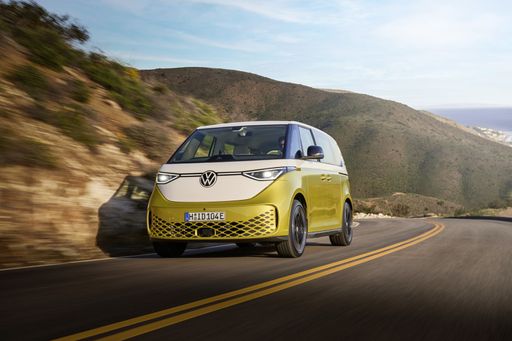
VW ID. Buzz Bus
VW ID. Buzz Bus
The VW ID. Buzz revives the classic camper van vibe with a modern electric twist, offering plush space and a friendly, futuristic face that stops traffic. It’s clearly built for weekend escapes and city runs alike, with clever interior details that make it as practical as it is charming.
details
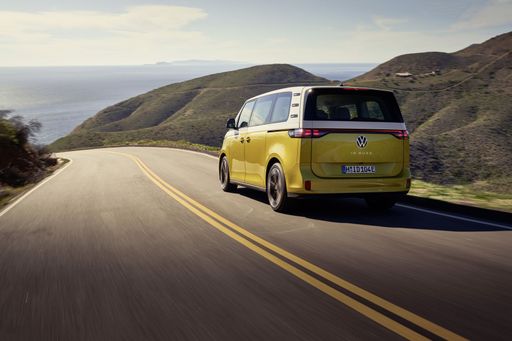
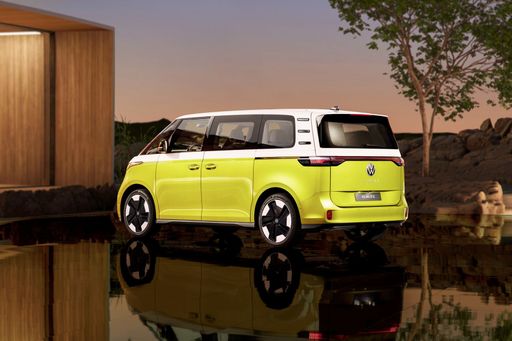
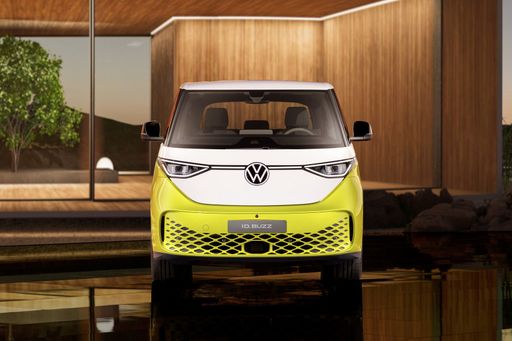

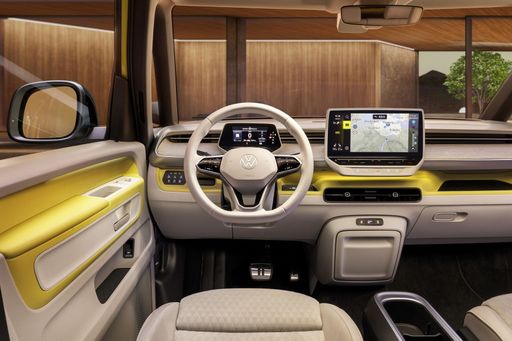
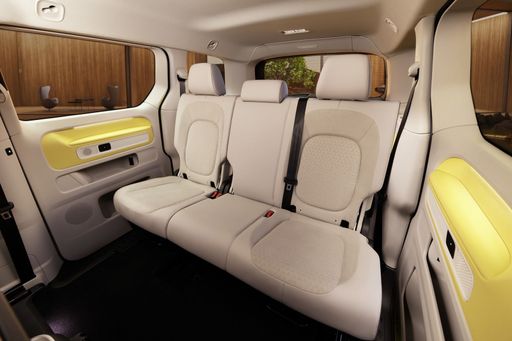
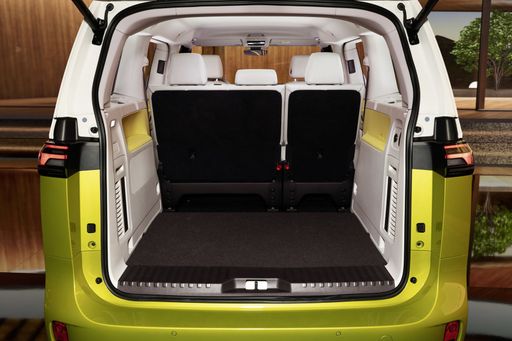
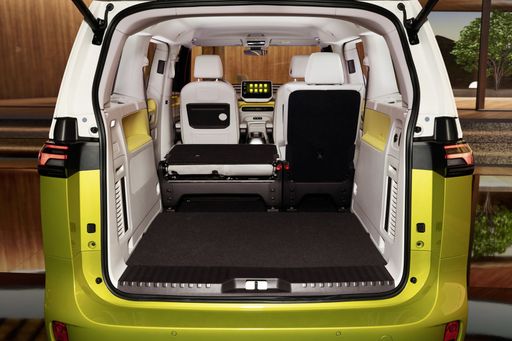
Hyundai IONIQ 9
The Hyundai IONIQ 9 is a bold step forward in the automotive world, combining cutting-edge electric technology with a sleek and modern design. This model stands out with its spacious interior and advanced features, ensuring both comfort and convenience for drivers and passengers alike. As Hyundai pushes the envelope in eco-friendly innovation, the IONIQ 9 represents the future of sustainable driving with its impressive range and performance capabilities.
detailsCosts and Consumption |
|
|---|---|
|
Price
42900 - 64200 £
|
Price
58700 - 74400 £
|
|
Consumption L/100km
-
|
Consumption L/100km
-
|
|
Consumption kWh/100km
19 - 20.6 kWh
|
Consumption kWh/100km
19.9 - 20.6 kWh
|
|
Electric Range
329 - 485 km
|
Electric Range
600 - 620 km
|
|
Battery Capacity
59 - 86 kWh
|
Battery Capacity
-
|
|
co2
0 g/km
|
co2
0 g/km
|
|
Fuel tank capacity
-
|
Fuel tank capacity
-
|
Dimensions and Body |
|
|---|---|
|
Body Type
Bus
|
Body Type
SUV
|
|
Seats
5
|
Seats
7
|
|
Doors
5
|
Doors
-
|
|
Curb weight
2400 - 2780 kg
|
Curb weight
2594 - 2689 kg
|
|
Trunk capacity
1121 - 1340 L
|
Trunk capacity
338 L
|
|
Length
4712 - 4962 mm
|
Length
-
|
|
Width
1985 mm
|
Width
1980 mm
|
|
Height
1924 - 1927 mm
|
Height
-
|
|
Max trunk capacity
2205 L
|
Max trunk capacity
-
|
|
Payload
462 - 600 kg
|
Payload
586 - 643 kg
|
Engine and Performance |
|
|---|---|
|
Engine Type
Electric
|
Engine Type
Electric
|
|
Transmission
Automatic
|
Transmission
Automatic
|
|
Transmission Detail
-
|
Transmission Detail
Reduction Gearbox
|
|
Drive Type
Rear-Wheel Drive, All-Wheel Drive
|
Drive Type
Rear-Wheel Drive, All-Wheel Drive
|
|
Power HP
170 - 340 HP
|
Power HP
218 - 428 HP
|
|
Acceleration 0-100km/h
6.1 - 10.7 s
|
Acceleration 0-100km/h
5.2 - 9.4 s
|
|
Max Speed
145 - 160 km/h
|
Max Speed
-
|
|
Torque
310 - 679 Nm
|
Torque
350 - 700 Nm
|
|
Number of Cylinders
-
|
Number of Cylinders
-
|
|
Power kW
125 - 250 kW
|
Power kW
160 - 315 kW
|
|
Engine capacity
-
|
Engine capacity
-
|
General |
|
|---|---|
|
Model Year
2024
|
Model Year
2025
|
|
CO2 Efficiency Class
A
|
CO2 Efficiency Class
A
|
|
Brand
VW
|
Brand
Hyundai
|
Is the VW ID. Buzz Bus offered with different drivetrains?
The VW ID. Buzz Bus is available as Rear-Wheel Drive or All-Wheel Drive.
